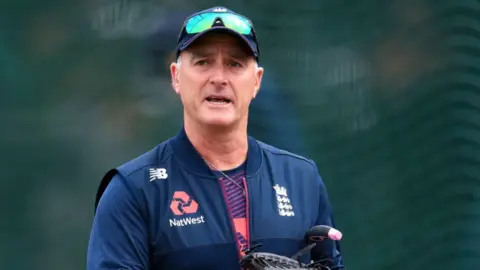The recent report from a coroner highlights significant failings in the care provided to former England cricketer Graham Thorpe, who tragically passed away under heartbreaking circumstances. Thorpe’s death on August 4, 2024, after being struck by a train at Esher railway station in Surrey, has raised serious questions about the mental health support he received prior to his demise. Following an inquest, which concluded with a ruling of suicide, the coroner, Jonathan Stevens, acknowledged that the health care professionals involved in Thorpe’s care did not perceive him to be in a crisis, despite alarming revelations that he had expressed wishes to end his life in the weeks leading up to his death.
Thorpe, aged 55 at his time of death, was recognized as one of England’s finest cricketers, having been a key player in the national team as well as in his domestic career with Surrey County Cricket Club. The coroner’s findings painted a troubling picture of a man who had suffered profound mental health challenges and who had begun to spiral deeper into depression, particularly following his job loss as a batting coach, a position he had occupied within the England and Wales Cricket Board. This loss was described as a “real shock” by his widow, Amanda, marking the beginning of a significant downturn in his mental health.
At the heart of the issue was the apparent inadequacy in the mental health care provided to Thorpe. During the inquest, it was disclosed that Thorpe’s care was lacking in several crucial respects. Notably, prior to his death, the last time he had face-to-face contact with healthcare providers was March 20, well over four months before he tragically passed away. Expressions of his distress, including conversations with his wife Amanda about his desire for help to end his life, were reportedly not given the weight they warranted by those responsible for his mental health care.
On June 28, 2024, Thorpe missed an important appointment with the community mental health team. Following this, care coordinator Katie Johnson spoke with his wife but only later reached out to Thorpe himself; during that interaction, he stated he hadn’t been out for a while and felt hopeless, though he insisted he had no immediate plans for self-harm. Despite these warning signs, healthcare providers did not deem it necessary to conduct a home visit or arrange for immediate in-person care, which, with hindsight, was deemed clinically necessary.
The coroner’s conclusions underscored the shortcomings in the mental health services provided to Thorpe, indicating that while there were clear areas for improvement, those failings did not constitute gross misconduct. Dr. Shriti Burgul, a consultant psychiatrist, examined the care outcome and stated there was no evidence to suggest that earlier intervention would have significantly changed the outcome despite the acknowledgment that seeing Thorpe in person could have potentially shed light on the severity of his condition.
The findings of the inquest provide not only a painful glimpse into Thorpe’s struggles with mental health but also act as a stark reminder of the pressing need for improved mental health services, particularly for vulnerable populations such as retired sports professionals. Thorpe was honored for his contributions to the sport as the England and Wales Cricket Board labeled him as one of the country’s greatest cricketers, admired for his generosity and passion for the game.
The cricket community is now urged to reflect on this tragedy and consider the broader implications for mental health awareness and support, especially for middle-aged men. Amanda Thorpe stated that her family plans to honor Graham’s legacy in a meaningful way, by organizing a celebration on what would have been his 56th birthday, in collaboration with the charity Mind to raise funds and awareness regarding mental health issues. The hope is to reduce the stigma associated with mental illness, encourage those in need to seek help, and support families grappling with similar struggles.












